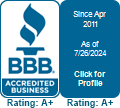| Keys to Raising Funds for a Startup 501c3 |
 |
 |
 |
|
-- Begin with your Board. Your Board of Trustees is an excellent starting point for fund raising both seed-money and continued funds for your organization. All Trustees are volunteers, but not all volunteers are Trustees; while both parties should be passionate about your mission, your Trustees should contribute specific professional skill-sets, such as finance, marketing, or legal guidance, as well as a monetary contribution. Trustees will still be your front-line of fund raising before and long after you’ve hired full time fund raising staff.
-- Define your mission and build your case statement. In order to apply for grants and solicit donors, members, or sponsors, your organization must have a clear mission statement and an explanation of its intended programming. Your Board of Trustees can also be useful for developing these items.
-- Seek out seed money. It is legal to begin raising funds prior to receiving your nonprofit 501c3 status, and many organizations raise their start-up funds through crowd funding (small amounts from a collective pool of people who want to kick-start an organization) or angel donors (large-scale donors committed to the mission and willing to underwrite operating costs during the transitional period). After your 501c3 status has been approved, pursue seed money from governmental and private granting institutions. These foundations often require a fully developed case statement, but are usually understanding towards new and untried programming. Your organization should not neglect these are valuable funds during its first year of operation.
-- Set up your initial fund raising programs. Once your 501c3 status has been approved by the IRS, your organization should hit the ground running with its fund raising efforts. You are now able to solicit granting institutions directly for operating, capital, and programming funds, as well as make strong cases to individual donors and begin developing corporate sponsorships. Using your case statement as a guide, determine what fund raising areas best suit your organization and where you should allocate your fund raising resources accordingly. These areas may include an annual membership donation, grants, annual fund campaigns, special events, and major gifts. While some preferences must be given to specific fund raising areas based on the needs of your organization, you should also strive to build a good mix of fund raising activities as soon as possible, such as special events, annual giving campaigns to the general public, and carefully cultivated major gifts and corporate relationships.
Executing these points will create a strong basis for your new 501c3 organization and increase its chances for a fulfilled mission and future success.
|

